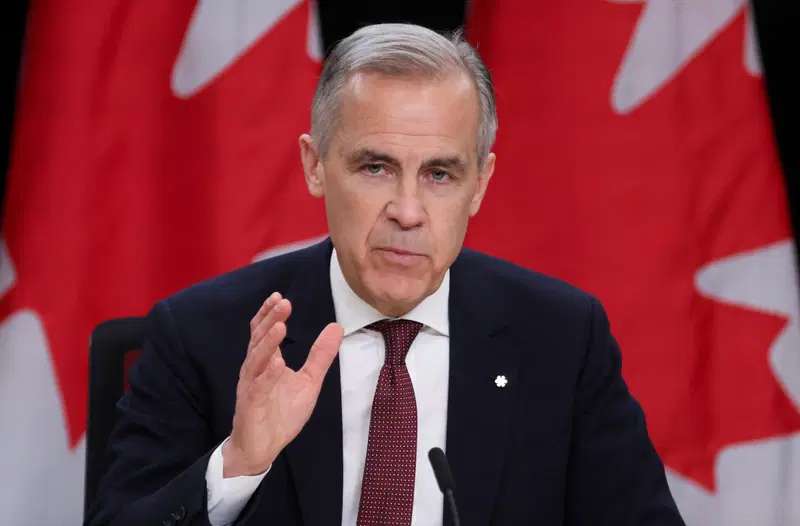Foreign News
Canada to recognise Palestinian state at UN in September, says Prime Minister Carney

Canadian Prime Minister Mark Carney has announced that his government will recognise the State of Palestine at the 80th session of the United Nations General Assembly in September 2025 — a historic policy shift that has sparked sharp rebukes from Israel and the United States.
Speaking on Wednesday, Carney said the recognition was essential to keeping alive the prospects of a two-state solution to the Israeli-Palestinian conflict — a principle he said is “being eroded before our eyes.”
“Canada intends to recognise the State of Palestine at the UN General Assembly in September,” the prime minister declared, positioning Canada as the third G7 country, after France and the United Kingdom, to support Palestinian statehood in recent months.
The move, Carney explained, is also in response to the worsening humanitarian crisis in Gaza. “The immense suffering of civilians leaves no room for delay in coordinated international action to support peace,” he said.
Backlash from Israel and the US
Israel condemned the decision, calling it part of a “distorted campaign of international pressure.” The Israeli embassy in Ottawa issued a strongly worded statement, warning that recognising a Palestinian state without institutional reform and responsible governance amounted to legitimising Hamas, which carried out the October 7, 2023 attacks.
Former US President Donald Trump also reacted angrily. Taking to his Truth Social platform, Trump wrote: “Wow! Canada has just announced that it is backing statehood for Palestine. That will make it very hard for us to make a Trade Deal with them.”
Trump’s comments hint at potential diplomatic or economic consequences as Canada navigates the fallout from its decision.
Conditional recognition and reform demands
Carney made clear that Canada’s recognition is not unconditional. It is contingent on reform pledges by the Palestinian Authority (PA), led by President Mahmoud Abbas.
“Canada’s recognition is predicated on the Palestinian Authority’s commitment to essential reforms,” Carney stated. This includes holding general elections in 2026 — from which Hamas would be excluded — and the demilitarisation of the future Palestinian state.
Asked whether there was any circumstance under which Canada might reconsider its stance, Carney replied: “There’s a scenario — but possibly one that I can’t imagine.”
Support from Palestine and France
The Palestinian Authority welcomed the announcement, with President Abbas describing it as a “historic” step. France, which had earlier announced similar plans, expressed readiness to work with Canada to revive the long-stalled peace process.
Meanwhile, British Prime Minister Keir Starmer has also signalled support for Palestinian statehood, saying the UK would recognise Palestine in September unless Israel takes significant actions, including agreeing to a ceasefire in Gaza.
A fading two-state vision
Carney lamented that hopes for a negotiated two-state solution have been steadily eroding due to Hamas’ violence, Israel’s expanding settlements in the West Bank and East Jerusalem, and the dire humanitarian situation in Gaza.
He criticised Israel’s recent Knesset vote advocating annexation of parts of the West Bank and what he described as the country’s “ongoing failure to prevent humanitarian catastrophe in Gaza.”
Despite criticism from some quarters, Carney argued that Canada’s decision aligns with its long-standing commitment to peace and regional stability.
“Any path to lasting peace for Israel also requires a viable and stable Palestinian state — one that respects Israel’s right to security and peace,” he said.
The announcement marks a dramatic reorientation of Canadian foreign policy and adds momentum to a growing international movement toward Palestinian statehood amid escalating tensions and diplomatic stalemates in the Middle East.


